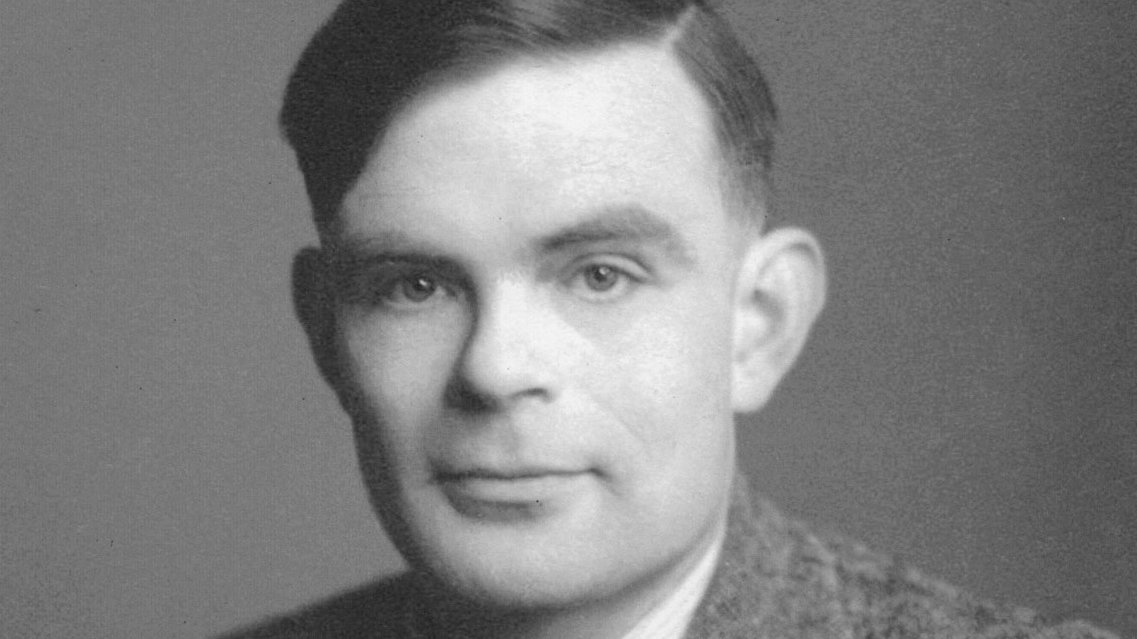
by Admin | Oct 9, 2020 | Chronicles, News
This week in The History of AI at AIWS.net – “Computing Machinery and Intelligence” by Alan Turing was published in the Mind quarterly academic journal in October 1950. It was the first instance that the “Turing test” was introduced to the public. The paper takes the question “Can machines think” and breaks it down. The paper also addresses 9 objections and arguments against Artificial Intelligence – Religious, “Heads in the Sands”, Mathematical, etc. Turing wrote about a potential “Learning Machine” that could successfully bypass the Turing test.
The Turing test, also known as the Imitation game, can be used to tell machines from humans. It poses a hypothetical, where a human evaluator would judge conversations between a machine designed for human-like responses and a human; if the evaluator cannot identify the machine from the human, then the machine passed the test. The test has proven to be both influential and controversial.
Alan Turing was a British computer scientist and cryptanalyst. He developed the Turing machine, a model of a general-purpose computer, in 1936. During the Second World War, he worked at Bletchley Park (Government Code and Cyper School) as a codebreaker for the United Kingdom. At his time here, he would play a critical role in solving Enigma, Germany’s wartime infamous encryption system. Solving Enigma helped turning the tide of the war in favour of the Allies. After the war, he would go on to develop the Turing test in 1950. Alan Turing is widely considered the father of modern Artificial Intelligence, as well as being highly influential in theoretical computer science. The “Nobel Prize of Computing”, the ACM Turing Award, is named after him.
The History of AI initiative considers this event to be important due to “Computing Machinery and Intelligence” being a seminal paper in regards to both Computer Science and AI. The paper introduces many new concepts in CS and AI to the general public. Alan Turing is a pivotal figure in the development of Artificial Intelligence, computing, and machine learning as well. Thus, the publication of this paper is a critical moment in the History of AI.
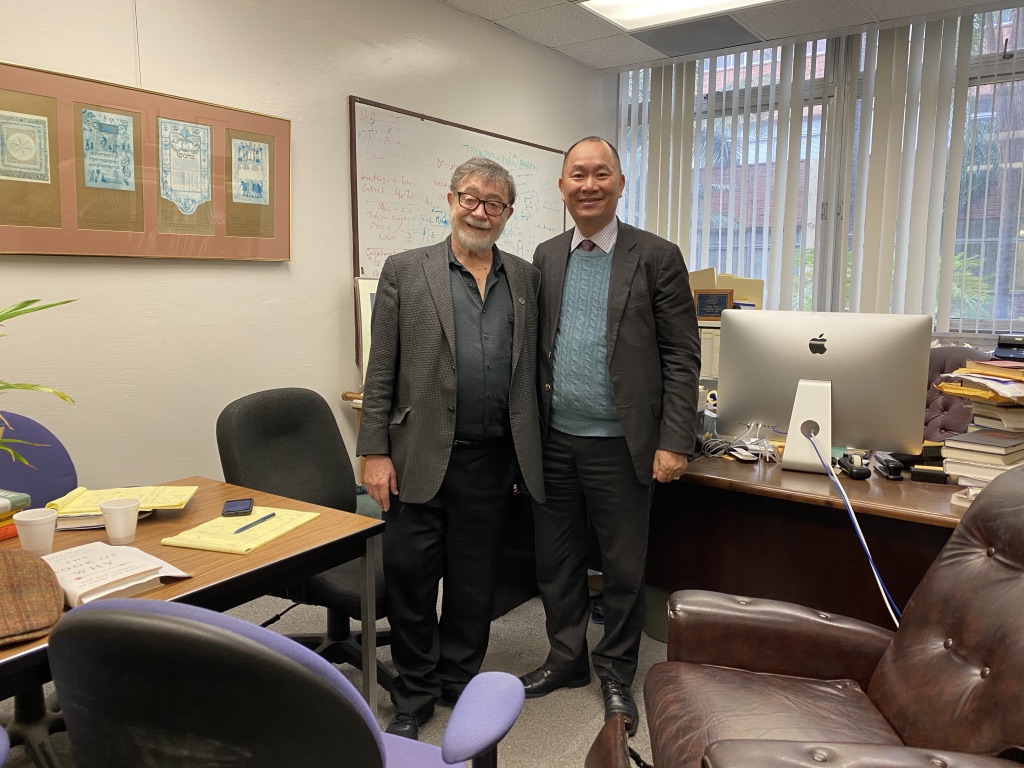
by Admin | Oct 2, 2020 | Chronicles, News
This week in The History of AI at AIWS.net – computer scientist Judea Pearl published Probabilistic Reasoning in Intelligent Systems in 1988. The book is, according to the publisher, about “the theoretical foundations and computational methods that underlie plausible reasoning under uncertainty.” The book covers topics such as AI systems, Markov and Baynesian networks, network propagation, and more. The Association for Computing Machinery (ACM) hailed the book as “[o]ne of the most cited works in the history of computer science” and that it “initiated the modern era in AI and converted many researchers who had previously worked in the logical and neural-network communities.”
1988 falls under the end of the second boom of AI, with the promotion of the Strategic Computing Initiative, Japan’s Fifth Generation, and other counterparts from other countries. The bust that followed it, known as the Second AI winter, lasted from the late 1980s to 1993. This bust was due to the perceptions of governments and investors, who believed that the field was failing, despite the fact that advances were still made.
Judea Pearl is a renowned Israeli-American computer scientist. He is a pioneer into Baynesian networks, probabilistic approaches to AI, and causal inference. He is also known for his other books, Causality: Models, Reasoning, and Inference (2000) and The Book of Why: The New Science of Cause and Effect (2018). Professor Pearl won the Turing Award, one of the highest honours in the field of computer science, in 2011, for his works into AI through probabilistic and causal reasoning. He is a Chancellor’s Professor at UCLA.
Probabilistic Reasoning in Intelligent Systems (1988) can be accessed through the ACM digital library, which also has other resources on computer science and AI.
Due to the impact that the book has, the History of AI initiative considers it an important marker in AI history. Professor Judea Pearl is one of the most influential computer scientists around the world. He is a Mentor of AI World Society Innovation Network (AIWS.net). Professor Pearl resides on the History of AI Board. He was honored as 2020 World Leader in AI World Society by Michael Dukakis Institute and the Boston Global Forum.
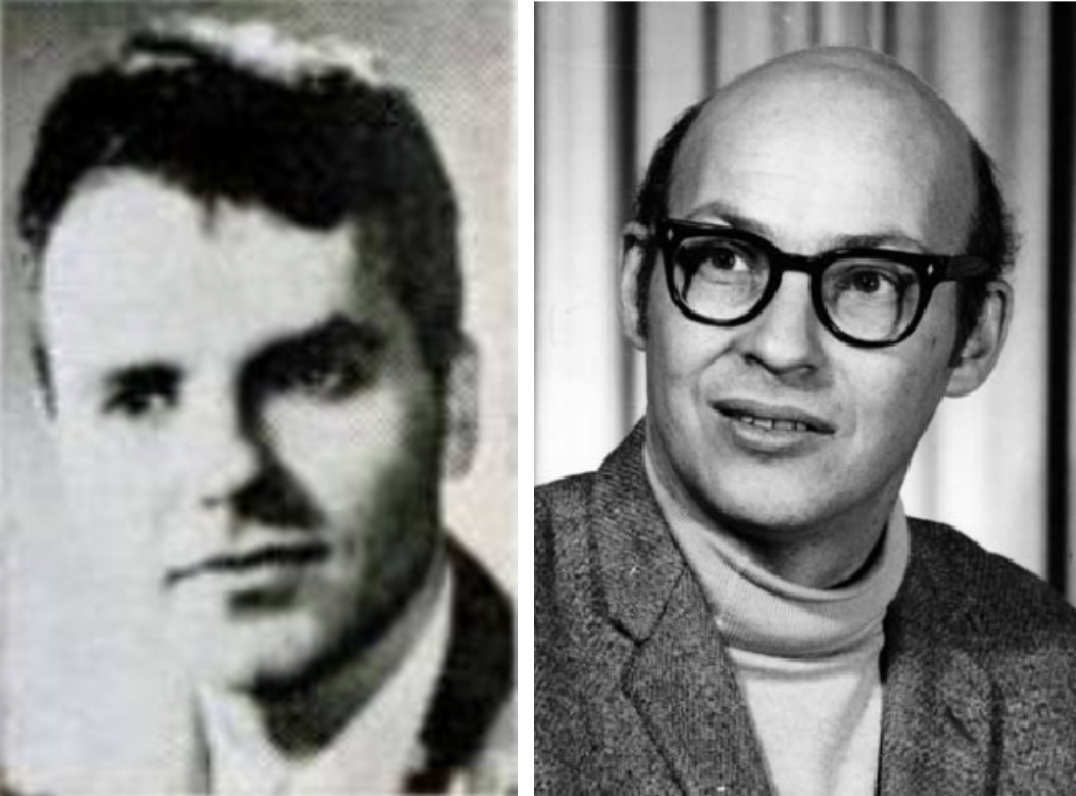
by Admin | Sep 25, 2020 | Chronicles, News
This week in The History of AI at AIWS.net – computer scientist James Robert Slagle developed SAINT in 1961. SAINT stands for Symbolic Automatic INTegrator. It was a heuristic program that could solve symbolic integration problems in freshman calculus. The machine was developed as a part of Slagle’s dissertation at MIT, with Marvin Minsky’s help. SAINT is considered the the first expert system. An expert system is a system that performs at the level of a human expert. SAINT was also one of the first projects that tried to produce a program that can come close to surpassing the Turing test as well.
James Robert Slagle is an American computer scientist. He worked on SAINT for his dissertation at MIT with Marvin Minsky. Slagle would receive his PhD in Mathematics from MIT later on in 1961. He’s a Professor in Computer Science with appointments in universities such as MIT, Johns Hopkins, UC Berkeley, and University of Minnesota.
Marvin Minsky also played a role in this project, as Slagle worked with him for this section of his dissertation. He would go on to be an important pioneer in the field of AI. He penned the research proposal for the Dartmouth Conference, which coined the term “Artificial Intelligence”, and he was a participant in it when it was hosted the next summer. Minsky would also co-founded the MIT AI labs, which went through different names, and the MIT Media Laboratory. In terms of popular culture, he was an adviser to Stanley Kubrick’s acclaimed movie 2001: A Space Odyssey. Minsky won the Turing Award in 1969.
The full dissertation can be found here. This project and dissertation is special in regard to AI, due to it being another step in its development, most notably for being the first expert system. Albeit it was only a minor project, the HAI initiative regards it as another pioneering attempt in the History of AI.
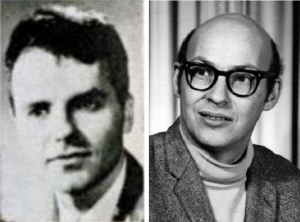
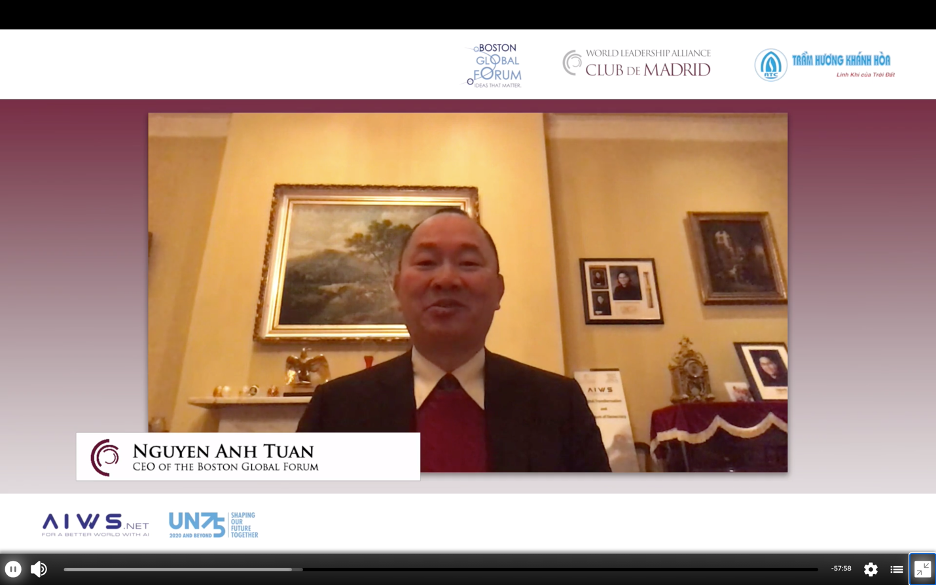
by Admin | Sep 19, 2020 | News
On September 17, at Session I of this event, Mr. Nguyen Anh Tuan, CEO of the Boston Global Forum, Co-Author of Social Contract for the AI Age, introduced the model of AI World Society City (AIWS City). AIWS City as a method of practicing the Social Contract for the AI Age.
The AIWS City is an all-digital virtual city based on trusted open data, that applies the standards of “Social Contract for the AI Age”, “People Centered Economy”, “Trustworthy Economy”, “Intellectual Society, a thoughtful civil society”, and “AI-Government”.
- The AIWS City can assist citizens to become more thoughtful by enhancing knowledge, critical thinking and social responsibility
- AIWS creates the concept of AIWS Value. AIWS Value: traditional value (products, services, data, innovation, creativities, etc.) + social values (contributions). Recognize and exchange traditional and social values.
- The AIWS City will operate based on AIWS Value in order to create a good Ecosystem of the People Centered Economy – “all people can create value for each other”.
- Slogan: “People Centered AI andInternet Ecosystem for Work and Life”.
- The AIWS City Board of Leaders are: Governor Michael Dukakis, Chairman of the Boston Global Forum, Nguyen Anh Tuan, CEO of The Boston Global Forum, Professor Alex Pentland, MIT, Vint Cerf, Father of the Internet, Chief Internet Evangelist of Google, Professor Zlatko Lagumdzija, Former Prime Minister of Bosnia and Herzegovina, Professor Nazli Choucri, MIT, Professor David Silbersweig, Harvard University, Professor Thomas Patterson, Harvard University, Marc Rotenberg, Director of Center for AI and Digital Policy at Michael Dukakis Institute.
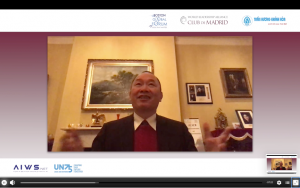

by Admin | Sep 18, 2020 | Chronicles, News
This week in The History of AI at AIWS.net – Marvin Minsky and Dean Edmonds built SNARC, the first artificial neural network, in 1951. SNARC stands for the Stochastic Neural Analog Reinforcement Calculator. It is a neural net machine, which itself is a randomly connected network of 40 Hebbs synapses. The idea to develop the machine was from a letter by Minsky to George Armitage Miller, who then got funding from the Air Force Office of Scientific Research. Dean Edmonds volunteered to help, as he was good with electronics.
Marvin Minsky was a graduate student in mathematics at Princeton at the time of this project. He would go on to be an important pioneer in the field of AI. He penned the research proposal for the Dartmouth Conference, which coined the term “Artificial Intelligence”, and he was a participant in it when it was hosted the next summer. Minsky would also co-founded the MIT AI labs, which went through different names, and the MIT Media Laboratory. In terms of popular culture, he was an adviser to Stanley Kubrick’s acclaimed movie 2001: A Space Odyssey. He won the Turing Award in 1969.
Dean Edmonds was a graduate student in physics at Princeton at the time of the project. Although there is not many information about him, he wrote a short piece about his time around academia, which also details his contacts with Minsky and SNARC. George Armitage Miller, who helped get funding for the project from the Air Force, was an American psychologist. He was a pioneer in the field of cognitive psychology and cognitive science.
This project is important to the History of AI as SNARC machine was one of the first experiments in the Artifical Intelligence. Furthermore, Marvin Minsky would become one of the founders of AI. HAI considers this an eventful project in the early development of AI.
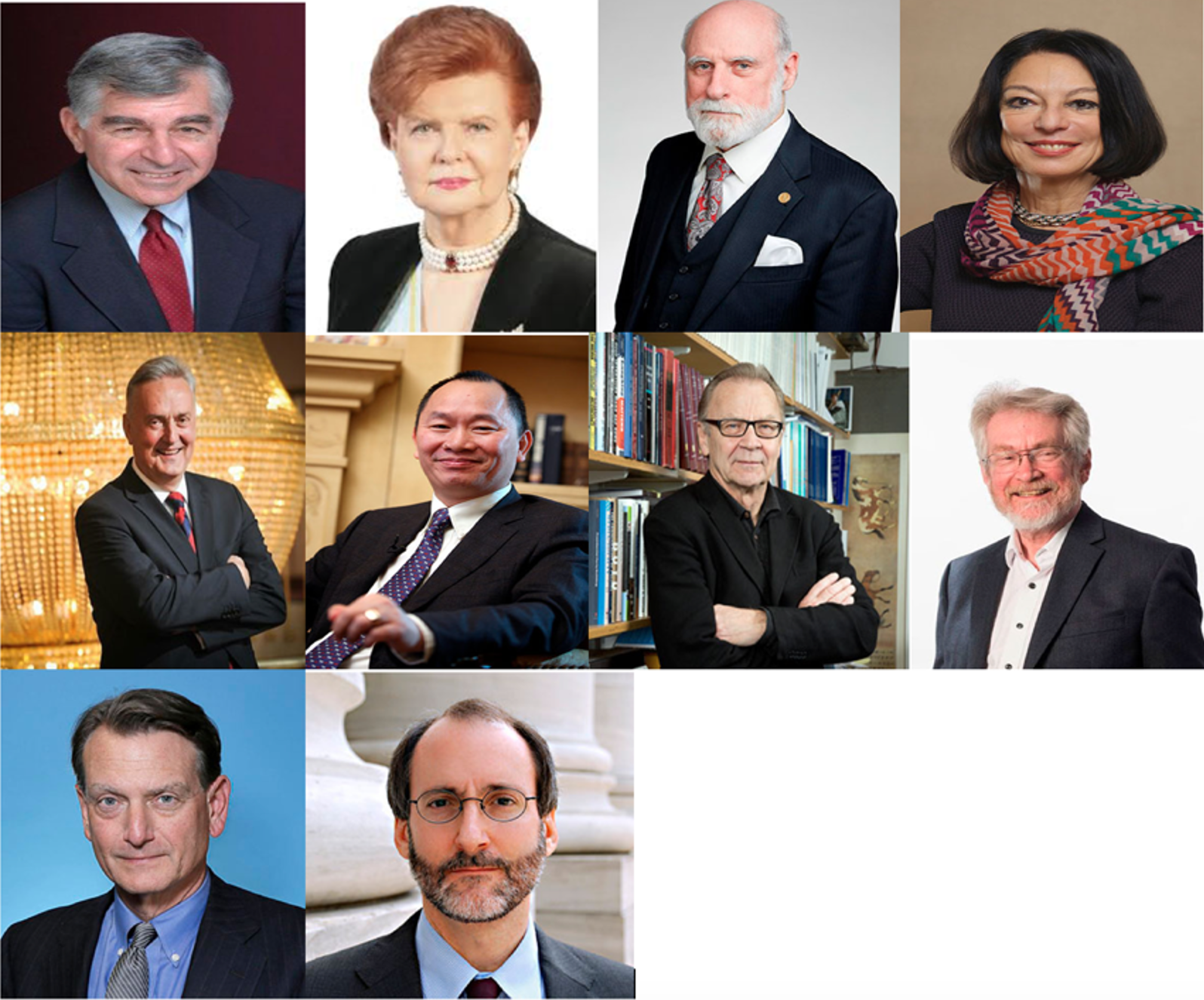
by Admin | Sep 12, 2020 | News
This is the first social contract in the digital, Internet and AI era, a platform for connection among governments, stakeholders, and private and public institutions, and for balancing centers of power, initiated by the Boston Global Forum, will pay particular attention to insights presented by government representatives, academic institutions, think tanks, tech companies and civil society.
The Social Contract for the AI Age was completed and launched on September 9, 2020.
The co-authors of the Social Contract for the AI Age are:
Governor Michael Dukakis, Boston Global Forum and
President Vaira Vīķe-Freiberga, Latvia and World Leadership Alliance-Club de Madrid
Vint Cerf, Father of Internet, Google, Nazli Choucri, MIT,
Prime Minister Zlatko Lagumdzija, Bosnia and Herzegovina,
Tuan Anh Nguyen, Boston Global Forum, Thomas Patterson, Harvard University,
Alex Pentland, MIT, Marc Rotenberg, CAIDP, David Silbersweig, Harvard University
Please view and download the Social Contract for the AI Age either here or here.
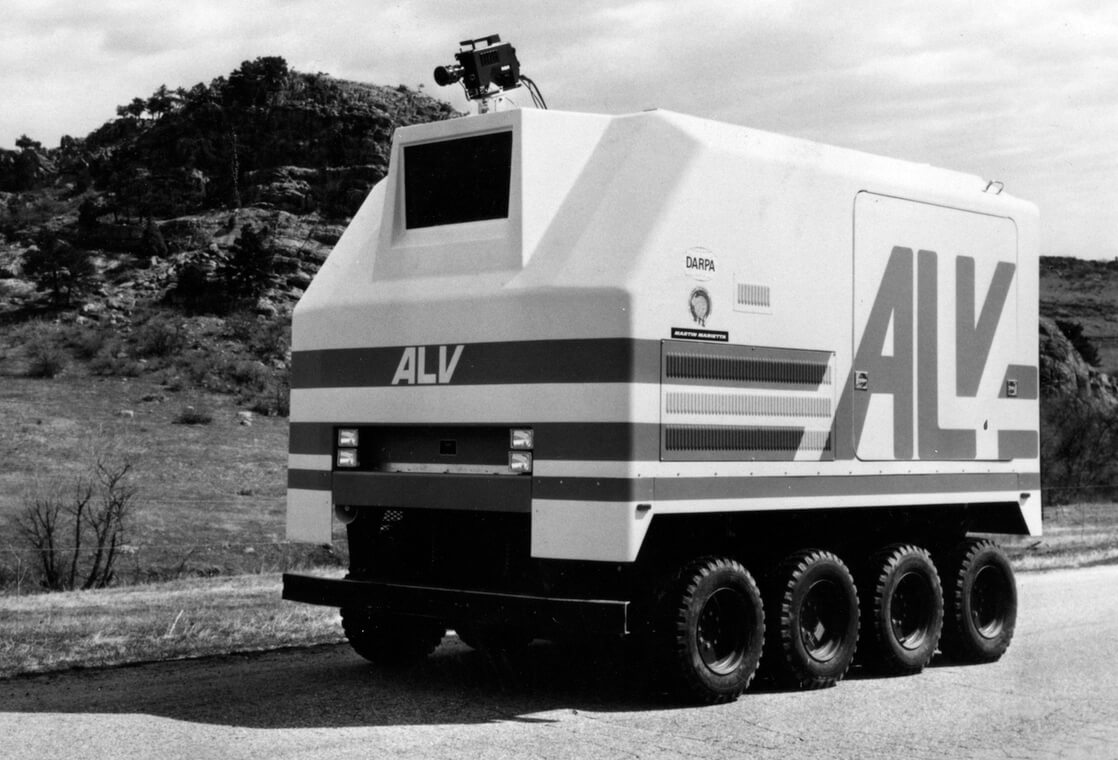
by Admin | Sep 11, 2020 | Chronicles, News
This week in The History of AI at AIWS.net – DARPA founded the Strategic Computing Initiative to fund research of advanced computer hardware and artificial intelligence in 1983. DARPA stands for the Defense Advanced Research Projects Agency, a research and development agency founded by the US Department of Defense in 1958 as the ARPA. Although its aim was for usage in the military, many of the innovations the agency funded were beyond the requirements for the US military. Some technologies that emerged from the backing of DARPA are computer networking and graphical user interfaces. DARPA works with academics and industry and report directly to senior DoD officials.
The Strategic Computing Initiative was founded in 1983, after the first AI winter in the 70s. The initiative supported projects that helped develop machine intelligence, from chip design to AI software. The DoD spent a total of 1 billion USD (not adjusted for inflation) before the program’s shutdown in 1993. Although the initiative failed to reach its overarching goals, specific targets were still met.
This project was created in response to Japan’s Fifth Generation Computer program, funded by the Japanese Ministry of Trade and Industry in 1982. The goal of this program was to create computers with massively parallel computing and logic programming and to propel Japan to the top spots in advanced technology. This will then create a platform for future developments in AI. By the time of the program’s end, the opinion of it was mixed, divided between considering it a failure or ahead of its time.
Although the results of the SCI and other computer/AI projects in the 80s were mixed, they helped brought funding back to AI development after the first AI winter in the 70s. The History of AI marks the Strategic Computer Initative as an important event in AI due to its revival of AI in the US.

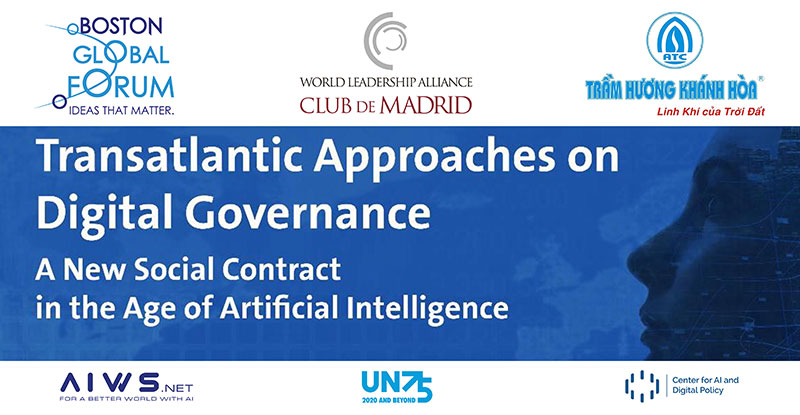
by Admin | Sep 10, 2020 | News
Press Note
16-18 September 2020
Democratic former Heads of State and Government, Members of Club de Madrid, current Government representatives, experts and renowned scholars will analyse global challenges and offer actionable policy solutions at a transatlantic and multi-stakeholder Policy Lab on the Social Contract for the AI Age, a new social contract on digital technologies and artificial intelligence
Madrid, 10 September 2020. In the midst of the current COVID-19 global health emergency, has impacted all spheres of life, humanity has turned to digital technologies and artificial intelligence to face impending challenges. From remote working to financial services and medical equipment, the extent to which we now depend on technology is increasing at a staggering rate. Hospitals are using robots to disinfect rooms, governments have become reliant on complex databases to curb the virus’ spread, and programmers have designed phone apps from which we can remotely control outbreaks. Under the present circumstances, technology seems to be an ally rather than a foe. Still, increasing concern from governments, academics and civil society that this technological transformation may be outpacing policy, must not be overlooked.
In this trying context, World Leadership Alliance-Club de Madrid (WLA-CdM) in partnership with the Boston Global Forum (BGF), and with the generous support of the Tram Huong Khanh Hoa Company (ATC), is organising the Policy Lab “ Transatlantic Approaches on Digital Governance: A New Social Contract in the Age of Artificial Intelligence,”. This multi-stakeholder dialogue will analyse global challenges and offer actionable policy solutions, as we consider the need to create a new social contract on digital technologies and artificial intelligence (AI). By contrasting North American and European best practices and perspectives, Club de Madrid and Boston Global Forum aim to formulate policy recommendations and innovative ideas that will help shape the role of the multilateral system in digital governance and give way to a renewed agreement between society and governments on digitalisation.
To debate these challenges, this forthcoming Policy Lab will convene over 10 former democratic Heads of State and Government (all Members of Club de Madrid) Manuel Muñiz, Secretary of State for Global Spain, Ministry of Foreign Affairs, European Union and Cooperation of Spain, as well as world class experts like computer scientist and father of the Internet, Vint Cerf, chess grandmaster Garry Kasparov, MIT Professor Alex ‘Sandy’ Pentland, Governor Michael Dukakis, Democratic Party nominee for President of the United States (1988), professors of Harvard, MIT, and top universities. Together, participants will lend their experience-based critical judgement to pioneering discussions which seek, among other priorities, to identify ways of engaging different sectors of society in grounding policymaking while protecting the democratic mandate.
Safeguarding citizen rights has become imperative since technology grants substantial power to those who control it. For instance, the technology being used to track citizen movements could potentially pose a violation of privacy rights if misused or left at the hands of non-democratic governments. New communication channels have also been contributing to the rapid spread of fake news about COVID-19, which has generated disinformation and increased confusion.
All in all, the rapid rollout of digital technologies and AI beyond the control of states poses a global challenge never seen before, which is why we should not set global, regional and national standards of digital governance without the participation of all societal actors. In this sense, debates from this Policy Lab on “The Social Contract for the AI Age”, the first social contract in the digital, Internet and AI era, a platform for connection among governments, stakeholders, and private and public institutions, and for balancing centers of power, initiated by the Boston Global Forum, will pay particular attention to insights presented by government representatives, academic institutions, think tanks, tech companies and civil society.
By comparing American and European approaches in the creation of a new social contract on digitalisation, with the foresight of former democratic presidents and prime ministers, this discussion will generate a space to encourage and strengthen transatlantic cooperation around digital governance, in the framework of much needed multilateral reforms and urgent global responses to global challenges like the COVID-19 crisis. The dialogue will also serve as a platform to establish a Transatlantic Alliance for Digital Governance and the AIWS City, an all-digital virtual city based on the standards and norms of “the Social Contract for the AI Age”, “People Centered Economy”, “Trustworthy Economy” and “Intellectual Society”. Lastly, the policy discussion aims to discuss the creation of an initiative to monitor governments as well as companies in using AI and to generate an AI Ethics Index at all levels.
REGISTRATION AND FURTHER INFORMATION
Join us in this Policy Lab “Transatlantic Approaches to Digital Governance: A New Social Contract in the Age of Artificial Intelligence” to be held between 16-18 September.
REGISTER
For further information visit the Policy Lab website.
WEBSITE
ABOUT
World Leadership Alliance-Club de Madrid (WLA-CdM) is the largest assembly of political leaders working to strengthen democratic values, good governance and the well-being of citizens across the globe. As a non-profit, non-partisan, international organization, its network is composed of more than 100 democratic former Presidents and Prime Ministers from over 70 countries, together with a global body of advisors and expert practitioners, who offer their voice and agency on a pro bono basis, to today’s political, civil society leaders and policymakers. WLA-CdM responds to a growing demand for trusted advice in addressing the challenges involved in achieving ‘democracy that delivers’, building bridges, bringing down silos and promoting dialogue for the design of better policies for all. This alliance, providing the experience, access and convening power of its Members, represents an independent effort towards sustainable development, inclusion and peace, not bound by the interest or pressures of institutions and governments.
In 2019 the WLA-CdM launched a ‘Call to Action’ to promote a democratic approach to Digital Transformation and the Future of Democracy, developed during its 2019 Annual Policy Dialogue, whereby it invites world leaders to take proactive action to frame the development of digital technologies in an inclusive, fair and rights-based legal, political and social framework.
The Boston Global Forum (BGF) is a not-for-profit think tank based in Boston, Massachusetts. Its mission is to bring together, in an open and accessible public forum, an eclectic and engaging spectrum of esteemed academic leaders, real-world experts, thought leaders, media experts and promising young leaders, who are dedicated to seeking peaceful solutions to the most contentious issues of our times. An offshoot of The Boston Global Forum, The Michael Dukakis Institute for Leadership and Innovation (MDI) was born in 2015. Its mission is to generate ideas, create solutions, and deploy initiatives to solve global issues, especially initiatives in Cybersecurity and AI World Society Innovation Network (AIWS-IN)
The Artificial Intelligence World Society (AIWS) is a set of values, ideas, concepts and protocols for standards and norms whose goal is to advance the peaceful development of AI to improve the quality of life for all humanity. It was conceived by the Michael Dukakis Institute for Leadership and Innovation (MDI) and established on November 22, 2017. Read more here.
CONTACT
- Further details of WLA-CdM are available by contacting Agustina Briano, Outreach and Development Coordinator of WLA-CdM: [email protected]
- Further details of BGF and AIWS are available by contacting Tuan Anh Nguyen, Co-founder and Chief Executive Officer of The Boston Global Forum, and Director of The Michael Dukakis Institute for Leadership and Innovation: [email protected]
- For press credentials please contact Dick Pirozzolo: [email protected] / +16179594613
- For press inquiries and/or interview requests of WLA-CdM Members, please reach Alejandro Hita, Communications Manager of WLA-CdM: [email protected] / +34607694354
SOCIAL MEDIA
HASHTAG
#DigitalGov
View in PDF format click here
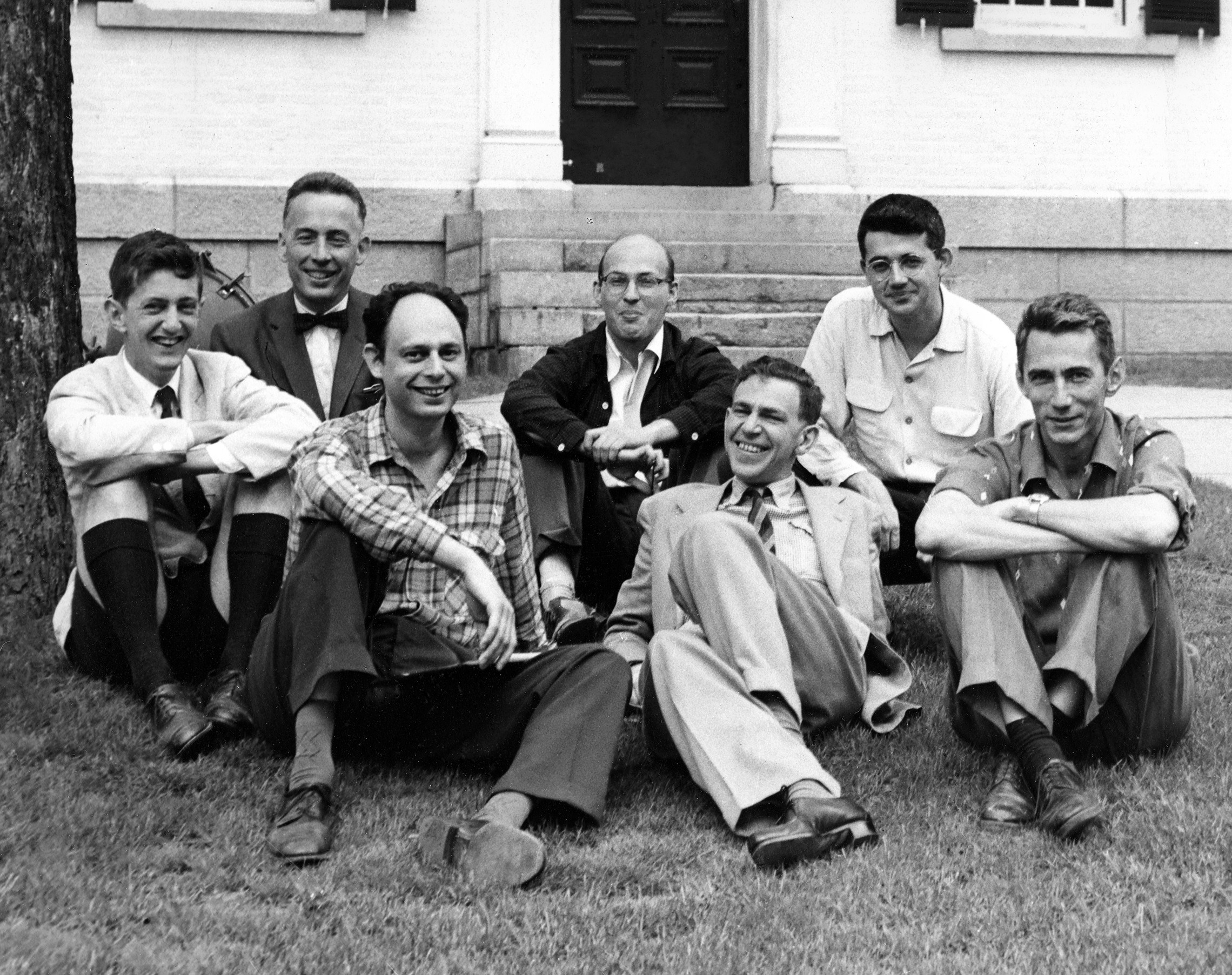
by Admin | Sep 4, 2020 | Chronicles, News
This week in The History of AI at AIWS.net – the Dartmouth Summer Research Project on Artificial Intelligence was proposed. The proposal was submitted on September 2, 1955, but written on August 31, 1955. It was the collaboration of John McCarthy, Marvin Minsky, Nathaniel Rochester, and Claude Shannon, who would all go on to become important AI pioneers. John McCarthy and Marvin Minsky came from academic backgrounds (Dartmouth and Harvard respectively). On the other hand, Nathaniel Rochester (IBM) and Claude Shannon (Bell Telephones) were tied to corporations.
This proposal was the first instance of the phrase Artificial Intelligenc being used officially. The document names direct some aspects of AI – automatic computer, how can a computer can be programmed to use a language, neuron nets, theory of the size of calculation, self improvements, and randomness and creativity. The research proposal asked for funding from sources such as the Rockefeller Foundation. Their estimated cost was $13,500 (not calculated for inflation)
The document called for a “2 month, 10-man study of Artificial Intelligence” in the summer of 1956 (the year following this document’s publication) at Dartmouth College. During this study, researchers will try to connect computer and information sciences with the brain. Each originator of the document wrote their own research proposal.
This event marks one of the beginnings of AI – the conception of what AI is and AI could be. It is the prelude to the big event of AI, the Dartmouth Conference. Without a seminal source like this, AI would not exist or may have taken a different direction entirely. The program, History of AI, owes a debt to the document.
A PDF of this proposal can be found here.
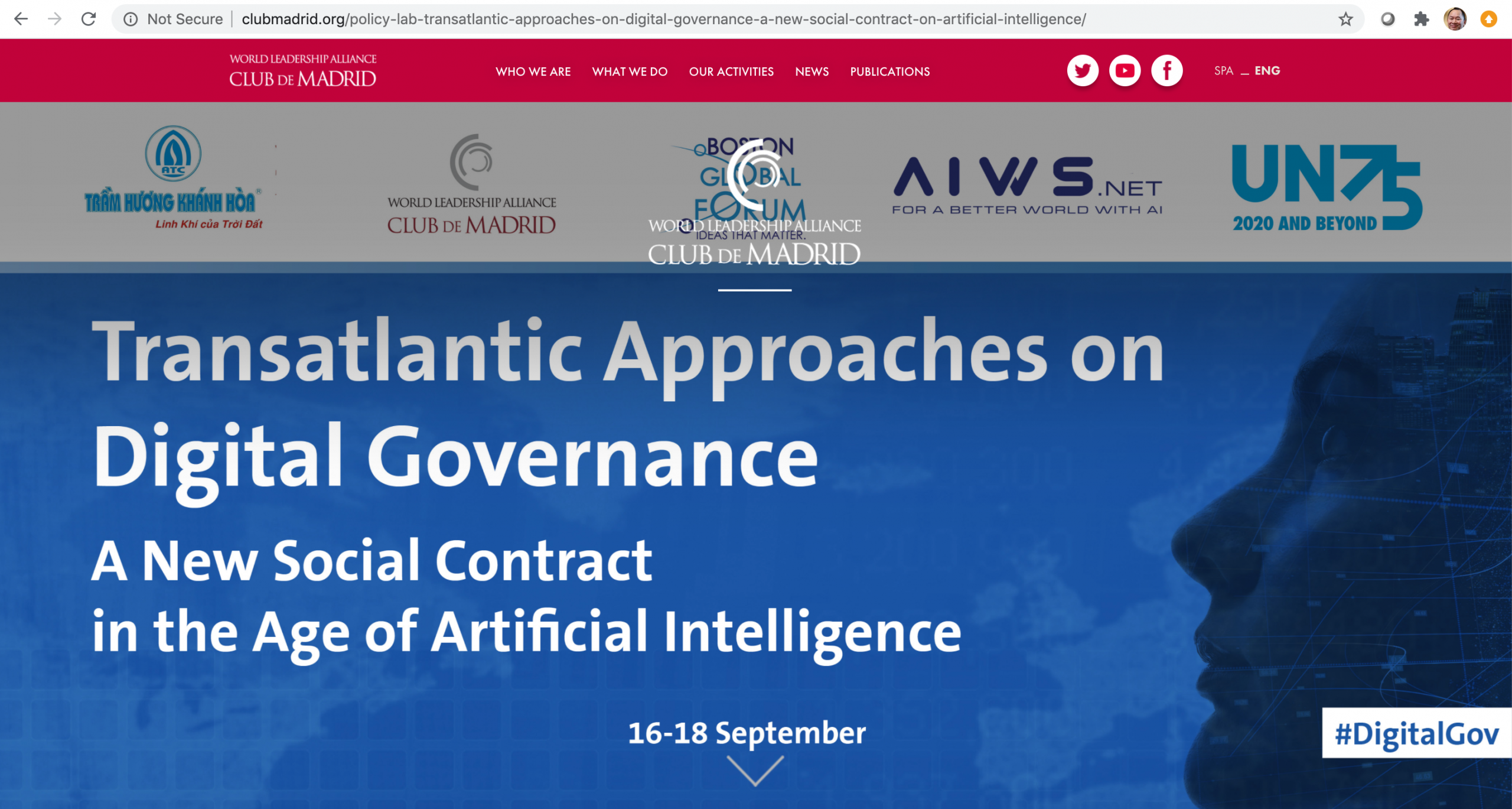
by Admin | Sep 4, 2020 | News
Nguyen Anh Tuan, CEO of the Boston Global Forum
World Leadership Alliance-Club de Madrid Conference, September 17, 2020
- Purpose:
- To create an all-digital, virtual, kind, intelligent, and innovative ecosystem for work and life named “the AI World Society City (the AIWS City)”.
- To practice concepts from “the Social Contract 2020, A New Social Contract in the Age of AI”, the People Centered Economy, and the Intellectual Society-Thoughtful Civil Society
- To use the Internet and AI to shape brighter futures and to create an ecosystem for work and life with the philosophy of the People Centered Economy.
- The AIWS City is an application and practice of the thoughts and ideas of Vint Cerf: The People Centered Economy.
- Principles and Concepts:
- Vint Cerf’s idea:” “All people can create value for each other. A good economy has an ecosystem of organizations that lets that happen, in the most meaningful and fulfilling ways.”
- The AIWS City is an all-digital virtual city based on trusted open data, that applies the standards of “the Social Contract 2020”, “People Centered Economy”, “Trustworthy Economy”, “Intellectual Society, a thoughtful civil society”, and “AI-Government”.
- The features of Intellectual Society, a thoughtful civil society, are knowledge, critical thinking and social responsibility.
- The AIWS City can assist citizens to become more thoughtful by enhancing knowledge, critical thinking and social responsibility
- AIWS creates the concept of AIWS Value. AIWS Value: traditional value (products, services, data, innovation, creativities, etc.) + social values (contributions). Recognize and exchange traditional and social values.
- The AIWS City will operate based on AIWS Value in order to create a good Ecosystem of the People Centered Economy – “all people can create value for each other”.
- Model of AIWS City:
- The AIWS City includes: Government of City, Citizens, Companies, and Intellectual Society-Thoughtful Civil Society
- Governments: use AI-Government (government assisted by AI, Data Science, and Internet)
- Build infrastructures for AI-Government based on Internet and Data Science (AI).
- Create social works for citizens and supports special education programs for citizens, creating Ecosystem of the AIWS City.
- Companies: apply Trustworthy Economy and support the People Centered Economy.
- Citizens: all citizens in the world that accept, respect, and practice the standards and regulations of AIWS City can become its citizen. AIWS citizens create values from Ecosystem of the AIWS City.
- Intellectual Society-Thoughtful Civil Society in the AIWS City: promote “the Social Contract 2020” and AIWS Value, as well as collaborate to create Ecosystem of the AIWS City.
- Implementation:
The AIWS City Board of Leaders are: Governor Michael Dukakis, Chairman of the Boston Global Forum, Nguyen Anh Tuan, CEO of The Boston Global Forum, Professor Alex Pentland, MIT, Vint Cerf, Father of the Internet, Chief Internet Evangelist of Google, Professor Zlatko Lagumdzija, Former Prime Minister of Bosnia and Herzegovina, Professor Nazli Choucri, MIT, Professor David Silbersweig, Harvard University, Professor Thomas Patterson, Harvard University.












